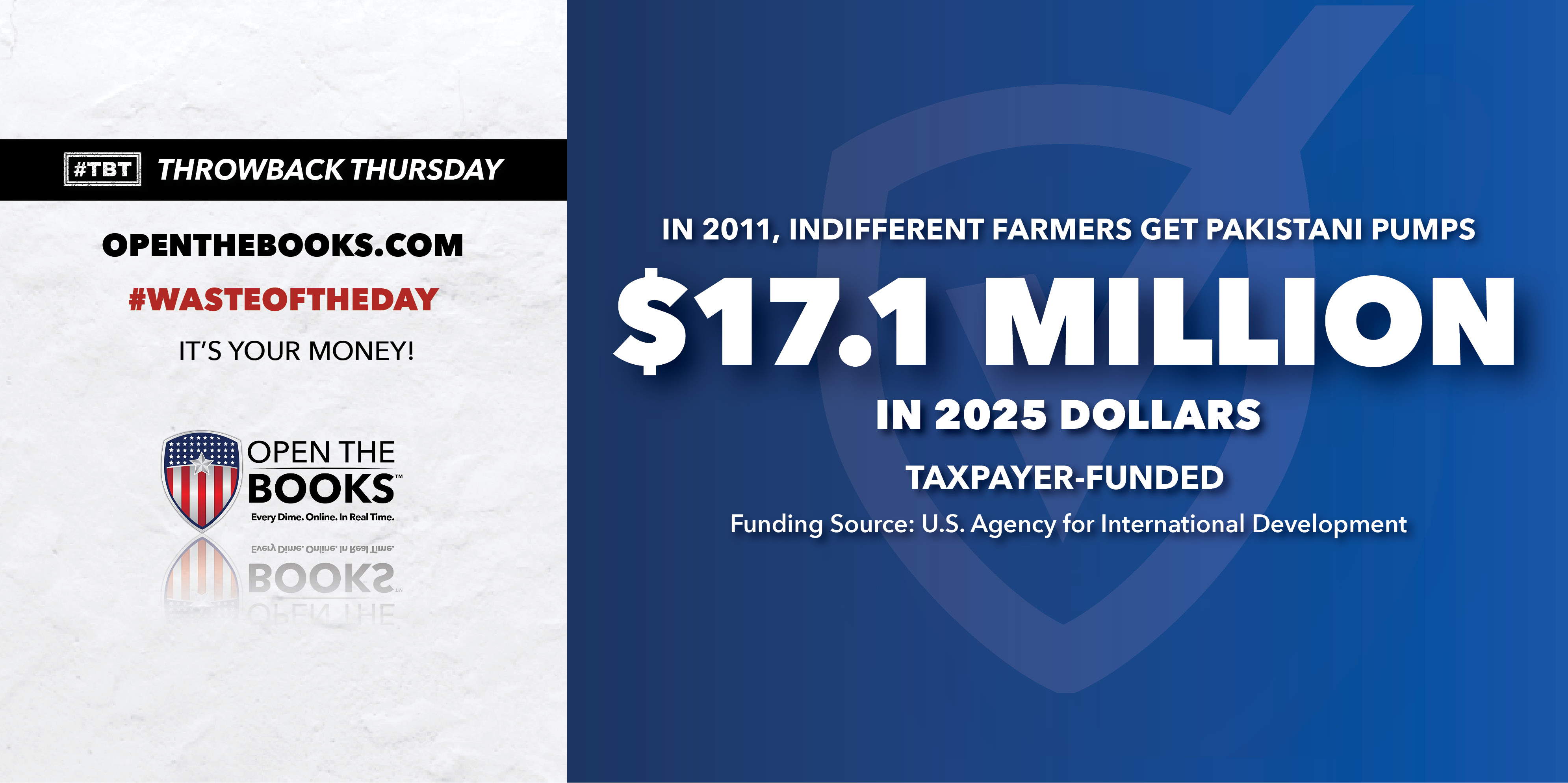Waste of the Day: Throwback Thursday: Pakistan’s Pump Failure
Topline: In 2011, the U.S. Agency for International Development completed a wasteful project by spending $12 million on energy-efficient irrigation pumps in Pakistan. The program bought far fewer pumps than planned without a reduction in the total cost, and the farmers receiving the new technology didn’t even want it.
That’s according to the “Wastebook” reporting published by the late U.S. Senator Dr. Tom Coburn. For years, these reports shined a white-hot spotlight on federal frauds and taxpayer abuses.
Coburn, the legendary U.S. Senator from Oklahoma, earned the nickname "Dr. No" by stopping thousands of pork-barrel projects using the Senate rules. Projects that he couldn't stop, Coburn included in his oversight reports.

Coburn's Wastebook 2011 included 100 examples of outrageous spending worth nearly $7 billion, including Pakistan’s not-so-efficient energy upgrades — which would be worth $17.1 million today.
Key facts: USAID first took on the issue of Pakistani power outages in 2009 after the country experienced daily outages ranging from four to 16 hours. The original plan was to help industries develop plans on how to use less energy, but by 2010 the agency had spent $2 million and made only “modest progress,” according to an inspector general report from the time.
To speed up the process, USAID agreed to subsidize half the cost for Pakistani farmers to buy 11,000 modern, energy-efficient irrigation pumps. U.S. taxpayers were expected to spend $1,400 per pump.
Severe flooding and unexpected electrical costs meant USAID was only able to replace 1,500 pumps at a price of $8,500 per pump. USAID also experienced a “difference of opinion” with the farmers. Many of them thought their old pumps worked just fine, and if they were going to be replaced, they would have rather bought Chinese pumps that were available at a lower price.
The program only reduced Pakistan’s overall energy consumption by seven megawatts, not the original goal of 45 megawatts.
Search all federal, state and local salaries and vendor spending with the world’s largest government spending database at OpenTheBooks.com.
Summary: Not every foreign aid program is wasteful, but USAID should have had more concerns about buying equipment for farmers that didn’t even want it.
The #WasteOfTheDay is brought to you by the forensic auditors at OpenTheBooks.com






